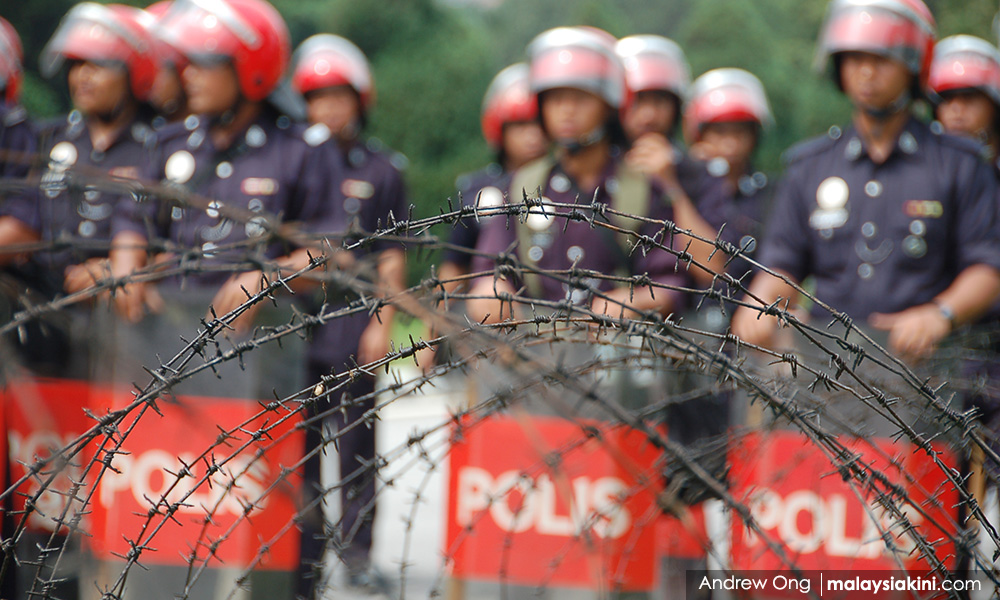
PARLIAMENT | Amendments to the Peaceful Assembly Act (PAA) 2012, which were tabled for first reading in the Dewan Rakyat today, will see the decriminalisation of street protests as part of the government's promised legal reforms.
Up until now, the PAA has only allowed stationary rallies.
Among its proposals, the PAA (Amendment) Bill 2019 moves to delete the term "street protest" as defined under Section 3 of the main Act and its subsequent mentions.
The term "street protest" is defined under Section 3 as an assembly involving marching to protest against or advance a cause.
With the amendments, a lawful public assembly would include a march from one location to another.
The Bill is expected to be debated during the current Parliament session, which began today and ends on July 18.
Among the key changes the Bill makes are as follows:
1. Street marches no longer an offence
Currently, Section 4(1)(c) of the PAA 2012 states that the rights to organise or participate in a peaceful assembly does not extend to a "street protest" as defined.
Furthermore, Section 4(2)(c) makes it an offence for any individual to participate in a "street protest" as defined by Section 3.
With the amendment to remove the term “street protest”, participation in a march from one destination to another is no longer punishable by an RM10,000 fine under Section 4(3)(c).
2. Shorter notice, objection, and appeals period
Currently, organisers of an assembly are required to provide a minimum of 10 days’ notice to the office in charge of the police district where the assembly is to be held. The notice should also be accompanied by a copy of permission received from the venue's owner, if applicable.
With proposed amendments to Section 9(1) of the Act, the minimum time required for organisers to submit their notice has been reduced to within seven days of the assembly instead.
Upon receiving the notice, the local police are allowed to impose certain conditions for purposes of public security and order, as well as to protect rights and freedoms of other persons.
The current Act states that any organiser aggrieved by the imposition of restrictions and conditions under Section 15 may submit an appeal to the Home Minister within 48 hours.
Under proposed amendments to Section 16(1), the appeal period has been reduced to 24 hours.
Similarly, the local police must now be notified of any objections to an assembly within 24 hours of receiving the organiser's notice, down from 48 hours, through a proposed amendment to Section 12(2).
3. Offences under the Act now compoundable
The PAA (Amendment) Bill 2019 also moved to insert a new Section 21A in regard to police powers to take action against organisers or participants of an assembly.
The new provision provides police, upon obtaining written permission from the deputy public prosecutor (DPP), with the power to fine organisers or participants a maximum of RM5,000 for any offences under Section 9 or Section 15 of the Act.
According to the Bill, police are now empowered to offer a written compound at any time after the suspected offence is committed.
However, the offer must be made prior to a formal charge for the suspected offence. Failure to settle the compound as per the amount offered could result in charges being brought against the organiser or participant.
The PAA 2012 was first enacted to replace Section 27 of the Police Act 1967, and removed the need to apply for police permits for mass assemblies. - Mkini



No comments:
Post a Comment
Note: Only a member of this blog may post a comment.